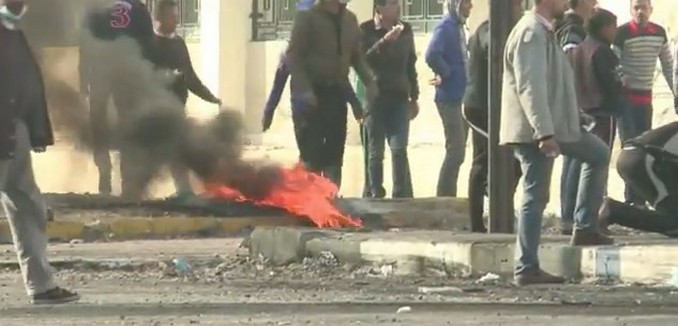Egyptian Interior Minister Mohammed Ibrahim is admitting that the country’s police forces are straining to contain protests sweeping the country, though he’s insisting that the government of Egypt will not yield ground to Islamist vigilantes and militias:
“From the minister to the youngest recruit in the force, we will not accept to have militias in Egypt,” Ibrahim said. “That will be only when we are totally dead, finished.” His declaration followed a statement by a hard-line Islamist group that its members would take up policing duties in the southern province of Assiut because of strikes by local security forces. Lawmakers have raised the possibility of legalizing private security companies, granting them the right to arrest and detain.
Violence erupted in Cairo this weekend after a court upheld death sentences for 21 soccer fans implicated in a February 2012 soccer riot. The February riot, which took place in the Egyptian city of Port Said, saw more than 70 killed. This weekend’s riots in Cairo, in which protesters destroyed police and soccer federation buildings, left two dead.
Two years after popular demonstrations overthrew the country’s then-ruler Hosni Mubarak, street clashes are on the verge of becoming endemic in Egypt. The country’s subsequent elections ushered into power the Muslim Brotherhood-linked president Mohamed Morsi, who soon undertook a series of power grabs that triggered renewed protests by Egyptians, many of whom oppose Islamist rule. The most recent wave of demonstrations, while specifically expressing anger at the soccer riot death sentences, is more broadly aimed at corruption and political imbalance.
Egypt now finds itself trapped in a vicious cycle where economic decline triggers popular discontent, and popular discontent prevents economic stabilization. The Morsi government can’t impose austerity — Cairo needs whatever economic populism it can muster — and won’t make concessions on political liberalization. The stance on political liberties has endangered assistance from Germany, while the refusal to undertake austerity has led the IMF to withhold funds:
An anonymous official from the Ministry of Finance revealed last Thursday that the International Monetary Fund (IMF) is “not satisfied with Egypt’s amended economic and social reform program submitted last week” , Al Youm 7’s website reported. He said that the economic reform programme, which introduced a set of austerity measures such as tax hikes on a range of goods and services, is not sufficient to qualify Egypt for the proposed $4.8bn IMF loan… “The IMF’s comments should come as no surprise since the country is embroiled in ongoing political and social turmoil,” he said.
Morsi’s inability to stem the chaos and refusal to address grievances by those in Egypt opposed to increasingly strict Islamist control risks triggering a precipitous decline in the president’s domestic and international standing. In the days after his 2012 election, Morsi’s position was such that he could spell out terms for what the U.S. would have to do in the Arab world. By late last month, the Egyptian military was pointedly holding meetings without him present.




